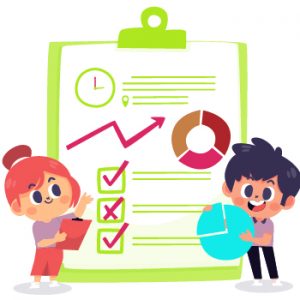
The Importance of Technical Jargon in Translation
No matter what profession you’re in, you’ll likely find yourself working with some jargon, whether it’s translation-related or not. Technical jargon (technical translation services), however, can be one of the trickiest to navigate. It can be hard to communicate exactly what you mean using technical terms. You need to know how technical jargon can affect your work as a translator in the translation industry and how you can use it effectively. This article will discuss what technical jargon is and how to manage it in your translations effectively.
An Overview of Technical Translation
Technical translation requires a unique set of skills like specialized vocabulary to communicate with technical experts effectively.
Technical jargon, for example, is more prevalent than you might think but is critical for accurate communication. Here’s an overview of technical translation to give you a better idea of how it works and why technical jargon is so essential.


How Important is Technical Translation?
Technical translation is a type of human translators-based service—which focuses on translation projects, from the source language to the target language, like legal, medical, scientific, and other specialized texts—relies heavily on technical jargon. This is important to keep in mind when translating technical material.
By understanding your client’s industry and previous experience in that industry, you can guarantee that your clients get a translation they are happy with.
What Are Technical Terms?
In technical translation services, technical terms are words that have a specific meaning. A big part of your job as a translator is to use these technical terms accurately and consistently throughout your work.
If you mess up even one of these terms, then you’re essentially breaking language barriers—potentially frustrating customers or hurting your company’s reputation. So it’s worth investing time into learning about technical jargon!


Does Technical Language Have an Impact on Translation Quality?
It is well known that technical language directly impacts translation quality. When translations are carried out without translators understanding definition of terms and jargon, they often leave out important information and can become very confusing for end-users. Know more about: Why Use Professional Translation Service For Technical Translations?
Consider an online product purchase as an example: if all parts of your site, including descriptions and specifications, are translated into another language with the only adequate skill level required to pass inspection, errors might occur when a customer is trying to work with your product. In worst-case scenarios there may be dangerous consequences!
How Does a Professional Translator Deal with Technical Terms?
Well, as with most things, it depends on your experience and domain knowledge. For example, if you work with law firms frequently or even specialized legal terms on a daily basis, technical jargon will be second nature to you.
But for a beginner translator or someone who doesn’t deal with these fields much, it might be a bit more daunting.
That’s why consulting an experienced translator can make all the difference!

The Importance of Expertise in Technical Translation
Technical translation requires a deep understanding of specialized terminologies and technical content. Accurate translations of technical documents, such as user manuals and technical manuals, are crucial for the target audience. A technical translator must possess specialized knowledge and technical terminology proficiency to ensure precise translations. The translation process often involves collaboration with subject matter experts to maintain the integrity of technical texts. Utilizing translation memories and machine translations can aid in managing consistency, but the role of specialized translators with in-depth knowledge remains irreplaceable. Whether translating user guides or patent documentation, the success of a technical translation project hinges on the translator’s technical knowledge and familiarity with the specific technical field.
High-Quality Technical Translations
Achieving high-quality technical translations for user interfaces and legal documents requires technical expertise and linguistic knowledge. A precise translation of complex concepts, such as engineering and product specifications, is vital for enhancing user experience and meeting legal standards. Partnering with a translation agency that specializes in the relevant field ensures accurate and human translations, reducing the risk of inaccuracies. Technical specifications demand a thorough understanding of technical concepts and the target market to provide translations that are both clear and contextually appropriate. By relying on experts, businesses can ensure that their documentation meets the highest standards of clarity and precision.
High-quality translation of software applications requires a solid understanding of technical subjects and consistent terminology. Technical writers play a crucial role in crafting the original document, ensuring that specialized terms are used accurately. For technical document translation, especially into a native language, the use of CAT tools, including translation memory tools and terminology management, is essential. These tools help maintain consistent and correct terminology, whether it’s for medical terminology or other technical language translations. By avoiding literal translation and focusing on the nuances of technical language, businesses can successfully enter foreign and international markets. Effective technical document translation ensures that software applications are understood and utilized correctly by users worldwide.
The Complexities and Strategies of Translating Technical Jargon
Translating technical jargon is a multifaceted task that involves grappling with intricate terminology specific to diverse industries. Each field—from aerospace engineering to medical diagnostics—possesses its lexicon of specialized terms, acronyms, and expressions that are crucial for precise communication among professionals. The challenge for translators lies not only in accurately rendering these terms into the target language but also in ensuring that their contextual meaning and technical accuracy are preserved.
A fundamental aspect of translating technical jargon is maintaining consistency across documents and ensuring that the translated text is understandable and meaningful to its intended audience. This requires a thorough understanding of the subject matter, often acquired through collaboration with subject matter experts (SMEs) who can provide insights into industry-specific nuances and usage.
Moreover, technical translators employ various tools and techniques to streamline the translation process and enhance accuracy. Translation memory systems store previously translated segments, allowing for consistent terminology usage throughout a project. Terminology databases are also indispensable, offering comprehensive lists of industry-specific terms and their translations. These resources not only aid in maintaining consistency but also help translators navigate the complexities of technical language with efficiency.
In addition to linguistic challenges, translating technical jargon demands staying abreast of advancements and changes within the respective fields. As technology evolves and new concepts emerge, translators must continuously update their knowledge and adapt their translations accordingly. This ongoing commitment to professional development ensures that translations remain relevant and aligned with current industry standards.
Ultimately, effective translation of technical jargon serves to bridge linguistic and cultural gaps, facilitating global communication and knowledge exchange. By meticulously handling specialized terminology with accuracy and clarity, translators play a pivotal role in enabling the dissemination of specialized knowledge across international borders, thereby contributing to advancements in various technical disciplines worldwide.
Challenges in Equivalency
One of the foremost challenges in translating technical jargon lies in finding equivalent terms in the target language. Many specialized terms lack direct translations due to linguistic and cultural differences. For example, concepts like “cloud computing” or “genetic engineering” may have coined terms or phrases in one language that do not exist in another. Translators often resort to using descriptive explanations or creating new terms that convey the same technical meaning while fitting seamlessly into the target language. This process requires linguistic creativity and a deep understanding of both the source and target languages’ technical landscapes.
Tools for Precision
To overcome the challenges of technical translation, translators rely on advanced tools and technologies. Translation memory systems store previously translated segments, enabling consistency in terminology and style across large volumes of text. These tools are particularly valuable in maintaining accuracy and coherence in technical documents where precise terminology is critical. Additionally, terminology databases provide translators with comprehensive lists of industry-specific terms and their translations, ensuring that the terminology used is appropriate and aligned with industry standards. By leveraging these tools, translators can streamline the translation process and enhance the quality of technical translations.
Collaboration with Experts
Effective translation of technical jargon often necessitates collaboration with subject matter experts (SMEs). These professionals possess specialized knowledge and expertise within their respective fields, offering invaluable insights into industry-specific terminology and usage. SMEs can clarify ambiguities, validate translations, and ensure that technical content is accurately conveyed in the target language. Their involvement not only improves the accuracy of translations but also enhances the overall quality and relevance of technical documentation for its intended audience.
Frequently Asked Questions
What is technical jargon in translation?
Technical jargon refers to specialized terminology used in specific industries or fields, such as engineering, medicine, or IT. Translating technical jargon involves accurately conveying these terms and concepts from one language to another while preserving their precise meaning.
Why is terminology important in translation?
Terminology is an important element in high quality technical translations, specially when translating a specialized area. It require subject matter expert. Like medical terminology and legal documents are done by house experts only.
The specialized documents aim to inform and their target audience may be specialists or professionals within the area, because they are familiar with the area’s specialized terminology that the translator must know in order to translate.
How do translators manage technical jargon effectively?
Translators manage technical jargon by utilizing their expertise in the subject matter and employing specialized dictionaries and resources. They may also collaborate with subject matter experts to ensure accurate translation of complex technical terms.
What challenges do translators face when dealing with technical jargon?
Challenges include finding equivalent terms in the target language, maintaining consistency across translations, and adapting to changes in technical terminology. Ensuring that translations are up-to-date with current industry standards is also crucial.
What are some best practices for translating technical jargon?
Best practices include conducting thorough research on the subject matter, maintaining a glossary of specialized terms, using translation memory tools for consistency, and reviewing translations for accuracy and readability. Collaboration with clients and subject matter experts can also enhance the quality of technical jargon translations.

